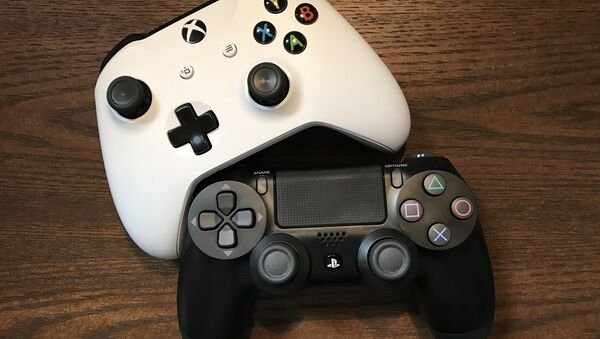Vladimir Poznyak: This suggestion to include the gaming disorder in the new revision of the international classification of diseases was proposed by a group of experts who were involved in this process in the WHO.
We had several technical consultations; we had a very thorough process of reviewing the scientific evidence, and we concluded that we have sufficient grounds to include gaming disorder into the ICD 11 on the following: there's a growing evidence of clinical cases which are reported to health services with these conditions, there's a significant body of research which shows that this condition can lead to functional impairment.
READ MORE: Lethal Swatting: Online Gaming Feud Causes Deadly Cop Shooting
It has many features similar to other conditions and it can be successfully prevented and treated. So this all led to the final conclusion to include gaming disorder into the classification.
Sputnik: How long has this issue been on the agenda of the WHO's Department of Mental Health? And what kind of research preceded this decision?
Vladimir Poznyak: It was on our agenda for the last four years when we started to explore the public health implications of addictive behaviors behind the substance use behaviors. There's a lot of research going on, though not every expert agrees that this condition has sufficient validity, diagnostic validity.
READ MORE: Ex-FBI Officer: Aggressive Movies, Video Games Increase Social Violence
It's also research at the levels of functional impairment in gaming disorder. So it's a combination of research activities, which provided what we believe is sufficient evidence base for our decision.
Sputnik: Which parts of the society are the most vulnerable when it comes to this gaming disorder?
Vladimir Poznyak: These are usually young people because the young people are, first of all, involved in gaming behavior. But at the same time, I think it would be premature to say that we have now sufficient evidence to identify the most vulnerable individuals. We don't have good predictors of who may develop this gaming disorder.
Sputnik: How many hours should a person spend behind a console so that it doesn't negatively affect his/her life or develop into a developing gaming addiction or gaming disorder?
Vladimir Poznyak: It's not possible at the moment to say how many hours and I doubt that it'll be possible in future. It's not about that. For example, if young people spend most of the weekend behind the console it doesn't mean that this person has a gaming disorder and it doesn't mean that this person will develop a gaming disorder.
What should be emphasized is that the prevalence of gaming disorder in the population, the expected prevalence, is very low. Sometimes it's less than 1% of the population, sometimes it's 2-3%, depending on the studies and on the population. But definitely the majority of people who are engaged in gaming behavior don't develop anything which is considered, which is introduced in the classification as a gaming disorder.
READ MORE: No Children: Game Developer Reveals the Truth About 'Active Shooter' (VIDEO)
So what we can convey as a message is that gaming behavior and spending time behind the console should be just one part of a range of different entertainment behaviors that people are engaged in, not to forget about physical activities which are so important for health, not to forget about proper nutrition, proper diet and a good sleep regime because all these issues can be impaired or can be affected if an individual starts to spend too much time gaming.
Sputnik: And what kind of help can people with gaming disorder get from professionals? What can be done to overcome the addiction?
Vladimir Poznyak: Let me, first of all, emphasize that this condition can be diagnosed only by health professionals who are properly trained to recognize these conditions. It's not something that if a person spends too much time with gaming that this person has highly probable gaming disorder. The diagnosis can only be made by health professionals.
The views expressed in this article are those of Vladimir Poznyak and do not necessarily reflect those of Sputnik.






